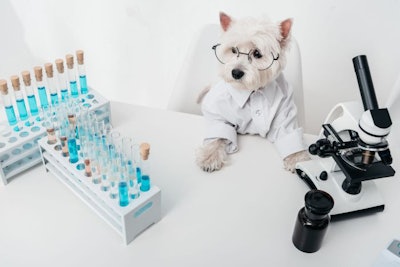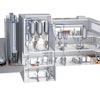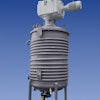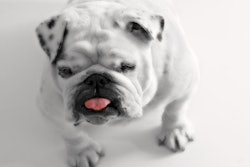
On January 11, Mars Petcare announced their acquisition of Genoscoper Laboratories. Genoscoper is a Finland-based molecular diagnostics specialist for companion animals. Even before this acquisition, the companies had been working together to use genetic analysis to identify pets’ health risks and make veterinarians' jobs easier.
Previously, Genoscoper and University of Helsinki scientists developed a method for testing pets’ deoxyribose nucleic acids (DNA), the molecular blueprint for all animals and plants. The technique, known as MyDogDNA, identifies particular genetic health markers in pets’ DNA that can help identify diseases and may guide nutrition.
Mars Petcare has a history of analyzing the DNA of companion animals as well. Mars’ genetic testing unit, Wisdom Health, has been commercially testing dogs and cats for over 10 years and to date, over 850,000 dogs and cats have been analyzed, Angela Hughes, DVM, PhD, a geneticist with Mars Veterinary, told Petfood Industry.
Wisdom Health and Genoscoper have been working together since 2015. Together the companies launched a product for dogs, Wisdom Panel Health, which combines breed ancestry with detection of potential inherited health conditions.
Mars Petcare’s two genetic testing units
Wisdom Panel Health is targeted towards pet owners, but Mars Petcare promotes genetic testing of dogs and cats through veterinarians as well though their subsidiary Royal Canin, Hughes said. Both Royal Canin Genetic Health Analysis and Wisdom Panel Health use the same Wisdom Health platform for genetic analysis.
“Both tests presently identify over 140 genetic disorders including a test for drug sensitivity, as well as, identifying a dog’s ancestors back three generations,” Hughes said.
With the Royal Canin Genetic Health Analysis test veterinarians collect the DNA sample, then receive the analysis results and use the information to guide care for their patients. On the other hand the Wisdom Panel Health allows the dog owner to collect the DNA sample using an at-home cheek-swab test and the resulting medical information is directed to them with the recommendation to take any potentially concerning results to their veterinarian to incorporate into their dog’s care plan.
Three examples of pets helped by genetic analysis
Hughes shared these three true stories of how genetic analysis helped ailed dogs and cats.
“I recently spoke with an owner whose 2 year old, very mixed-breed dog named Bear was positive for two copies a genetic mutation that causes a condition called Exercise Induced Collapse (EIC) that is found in many retriever breeds,” she said. “This is when the owner had her ‘A-HA’ moment! The owner relayed to me that as young as 3 months old, Bear had suffered from a very scary collapsing episode while she was running around playing.
“Bear was unable to stand and walk so the owner rushed her to the emergency room where she eventually recovered uneventfully but her condition left everyone scratching their heads as to the cause. Bear experienced a second collapsing episode a few months later where she was largely unresponsive for an hour before recovering which again was a very concerning event for her owner.
“After finding out about the EIC diagnosis, the owner now knows what is causing these collapse events and knows how to prevent them and Bear has not had another collapse event since her diagnosis over six months ago.
“Another story that has been shared with me is from a veterinarian who had adopted a purported ‘Beagle-mix,’ named Watson, through a rescue group. Watson underwent a routine dental cleaning under standard anesthesia and she noted that it took him about 4 days to fully recover and act “himself” again where a normal dog would typically be back to normal by the next day.
“Later she ran the genetic testing to fully identify his breed composition (and settle a bet with her husband about it) which revealed that Watson was predominantly Beagle (62.5%) but also 25% Australian Shepherd and that he was positive for one copy of a drug sensitivity mutation called MDR1.
“Now that she knows this information for Watson, she can either avoid or appropriately adjust his medication doses for the drugs (including some medications commonly used in anesthesia) that are impacted by this mutation and he should not experience any further adverse reactions as a result of the genetic disorder.
“Finally, an example from the feline world is neonatal isoerythrolysis (NI). NI can occur with the blood type of the queen (mother cat) doesn’t match to the kittens and queen has antibodies that attack the kitten’s red blood cells. This causes the kitten to develop a low red blood cell count that can cause severe disease or even be fatal if not treated immediately.
“As you might image this is a very big concern for breeders whose breeds can have both blood types involved. Thus, genetic testing to identify the blood types of the queen and the tom (father cat) to recognize when there could be a mismatch in blood type is very useful to prevent potentially costly and devastating consequences. Blood typing is available through our Optimal Selection Feline Genetic Breeding Analysis kit.


















